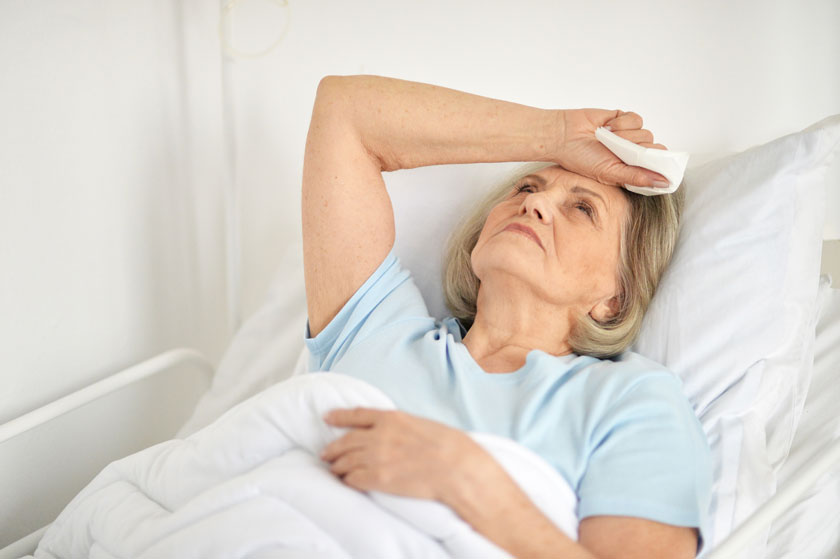Morning dizziness in elderly individuals is a common concern that can significantly impact daily life. This condition can stem from various factors, including medication side effects, dehydration, or even inner ear disturbances. Recognizing these symptoms early is crucial for managing and mitigating their effects, ensuring a safer, more comfortable start to the day for older adults.
At our Senior Living, we prioritize the health and well-being of our residents by addressing concerns like morning dizziness. Our team members are trained to identify the early signs of this condition, ensuring that every resident receives the care and attention they need. We focus on prevention through regular health assessments, personalized care plans, and by fostering an environment that encourages hydration and balanced nutrition.
Dehydration Affects Blood Volume, Leading to Morning Dizziness
When elderly individuals do not drink enough water, their blood volume decreases. This means there’s less blood circulating through the body. Upon waking, this reduced volume can struggle to supply the brain with the oxygen and nutrients it needs, resulting in dizziness. It’s like a garden hose that’s not fully turned on; the water trickles out slowly, insufficient to reach all parts of the garden.
Preventing dehydration is easy but requires attention. Encouraging the consumption of fluids throughout the day is key. While it’s important to reduce intake right before bed to avoid nighttime bathroom visits, maintaining a balanced hydration level during the day can mitigate morning dizziness. Offering water-rich foods like fruits and vegetables can also help.
In retirement communities, creating a culture of hydration is beneficial. Regular reminders and easy access to water encourage residents to drink regularly. Monitoring signs of dehydration in older adults can also prevent the issue before it leads to dizziness.
Medication Side Effects Cause Elderly to Feel Dizzy Upon Waking
Medications are a common solution to many health issues in older adults but can have side effects, including dizziness. For instance, blood pressure medications might lower blood pressure too much, especially overnight. Upon waking, this can lead to a dizzy spell as the body adjusts to movement and the demands of being upright.
It’s essential to have a healthcare provider review all medications regularly. Adjustments to the dose or the timing of the medication can sometimes reduce or eliminate morning dizziness. Open communication between residents, healthcare providers, and team members in retirement communities is crucial for managing this balance.
Awareness and training for team members can also help. Knowing which residents might be more at risk of morning dizziness due to their medications allows for extra attention during morning routines, ensuring safety and comfort.
Low Blood Pressure Results in Morning Dizziness in Older Adults
Blood pressure naturally dips during sleep. For many older adults, this drop can be more pronounced, leading to feelings of dizziness when they stand up in the morning. The body’s slower response to changing positions after sleeping can exacerbate this issue, sometimes called orthostatic hypotension.
Encouraging slow, mindful transitions from lying down to sitting and then standing can help manage this form of dizziness. Sitting on the edge of the bed for a few minutes before standing up allows the body time to adjust blood flow and pressure, reducing the risk of dizziness.
Retirement communities can support residents by ensuring that bedrooms are arranged to facilitate safe morning transitions. Bedside tables within easy reach for a glass of water or to support standing up can make a significant difference. Training for team members to assist residents with these morning routines safely is also beneficial.
Inner Ear Problems Trigger Dizziness in the Elderly After Sleeping
The inner ear plays a crucial role in maintaining balance. Issues within this delicate system, such as vertigo or BPPV (benign paroxysmal positional vertigo), can disrupt this balance, leading to dizziness, especially after periods of rest or when changing positions.
Treatment for inner ear issues often involves specific exercises, medications, or both. Consulting with a healthcare provider for an accurate diagnosis and treatment plan is vital. Simple maneuvers performed at home or in a clinical setting can greatly reduce symptoms.
Retirement communities can support residents with inner ear problems by facilitating access to medical care and adapting living spaces to reduce fall risks. Handrails, non-slip mats, and clear paths free of obstacles are important safety measures.
Blood Sugar Fluctuations Lead to Morning Dizziness in the Elderly
Finally, fluctuations in blood sugar levels can cause morning dizziness. Overnight fasting can lower blood sugar levels, especially in individuals with diabetes or those not eating enough balanced meals. This drop in blood sugar affects the body’s energy supply, leading to feelings of weakness and dizziness in the morning.
Managing blood sugar levels involves eating balanced meals with a focus on complex carbohydrates, fiber, and proteins to ensure a slow and steady release of glucose into the bloodstream. Monitoring blood sugar levels can help identify patterns of dips and spikes.
In retirement communities, providing meals that maintain blood sugar levels and offering snacks for those who need them before bedtime can help prevent morning dizziness. Education for residents and team members about the importance of dietary management in preventing dizziness is also key.
Join Us for Healthier Living
Our senior living Health & Wellness programs go beyond basic care. We embrace a holistic approach to health, integrating physical, mental, and social activities designed to enhance the well-being of our residents. Our goal is to create a supportive community where everyone can thrive, minimizing risks and promoting a lifestyle that actively prevents the common causes of morning dizziness.
Contact us today to learn more about how we can support you or your loved one’s journey toward improved health and wellness. Let’s take the next step together.







